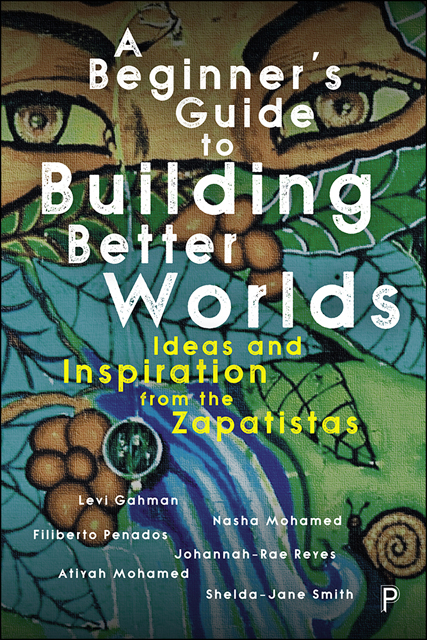Book contents
- Frontmatter
- Dedication
- Contents
- List of figures
- Guilty parties
- 1 Introduction: from liberal bystanding to emancipatory praxis
- 2 A world where many worlds fit
- 3 The coloniser’s model/neoliberal state of the world
- 4 Modernity-coloniality and Indigenous realities
- 5 Dispossession, extractivism and violence
- 6 Critical consciousness and praxis
- 7 Political education and radical pedagogy
- 8 Gender justice and social reproduction
- 9 Health, food sovereignty, solidarity economies
- 10 A battle for the soul of education
- Notes
- References
- Index
1 - Introduction: from liberal bystanding to emancipatory praxis
Published online by Cambridge University Press: 13 October 2022
- Frontmatter
- Dedication
- Contents
- List of figures
- Guilty parties
- 1 Introduction: from liberal bystanding to emancipatory praxis
- 2 A world where many worlds fit
- 3 The coloniser’s model/neoliberal state of the world
- 4 Modernity-coloniality and Indigenous realities
- 5 Dispossession, extractivism and violence
- 6 Critical consciousness and praxis
- 7 Political education and radical pedagogy
- 8 Gender justice and social reproduction
- 9 Health, food sovereignty, solidarity economies
- 10 A battle for the soul of education
- Notes
- References
- Index
Summary
Against death, we demand life.
The Zapatista Army for National Liberation (EZLN)Part I: Political education as historical necessity
Before we get started, and in order to be as upfront as possible about things, we must confess that this book is actually not about Zapatistas (believe it or not), but rather political education. That said, what better example of political education than the Zapatistas?
To begin, we need to address the current state of things. On this point, the world is undeniably in crisis and neither humanity nor Earth is safe. The coloniser's model of modernity, not to mention the global economy, has been in the making for over five hundred years and is operating, if not plundering, in full effect. The consequences include exploitation, repression, indifference, mass alienation and both human and non-human suffering, in addition to climate catastrophe and ecological ruin. We, collectively and the planet, are simultaneously confronted with the very real prospects of existential peril, environmental collapse, social anomie and spiritual death. All of these dynamics, when and if reflected on and considered seriously, raise a crucial two-fold question:
Under what circumstances is continuing to live under such conditions our best option – and why are we accepting it?
Amid such a reality and as a response to this question, countless people and communities all over the world (as well as perhaps even you yourself) – who have not given up hope in the face of what is seemingly impending doom – are declaring ‘Enough is enough!’ or ‘¡Ya basta!’, as the Zapatistas would say. Indeed, something's gotta give and things must change. But how?
On this front, well over half a century ago, the anti-colonial revolutionary Frantz Fanon (1963: 88) proclaimed in his ground-breaking book, The wretched of the earth, that ‘the political education of the masses is now recognised as an historical necessity’. Fanon, who was from the Caribbean and was dying of leukaemia at the time, was passionately offering this assertion amidst a violent struggle for liberation while tending to the injured in Africa – Algeria, to be precise.
- Type
- Chapter
- Information
- A Beginner’s Guide to Building Better WorldsIdeas and Inspiration from the Zapatistas, pp. 1 - 17Publisher: Bristol University PressPrint publication year: 2022



